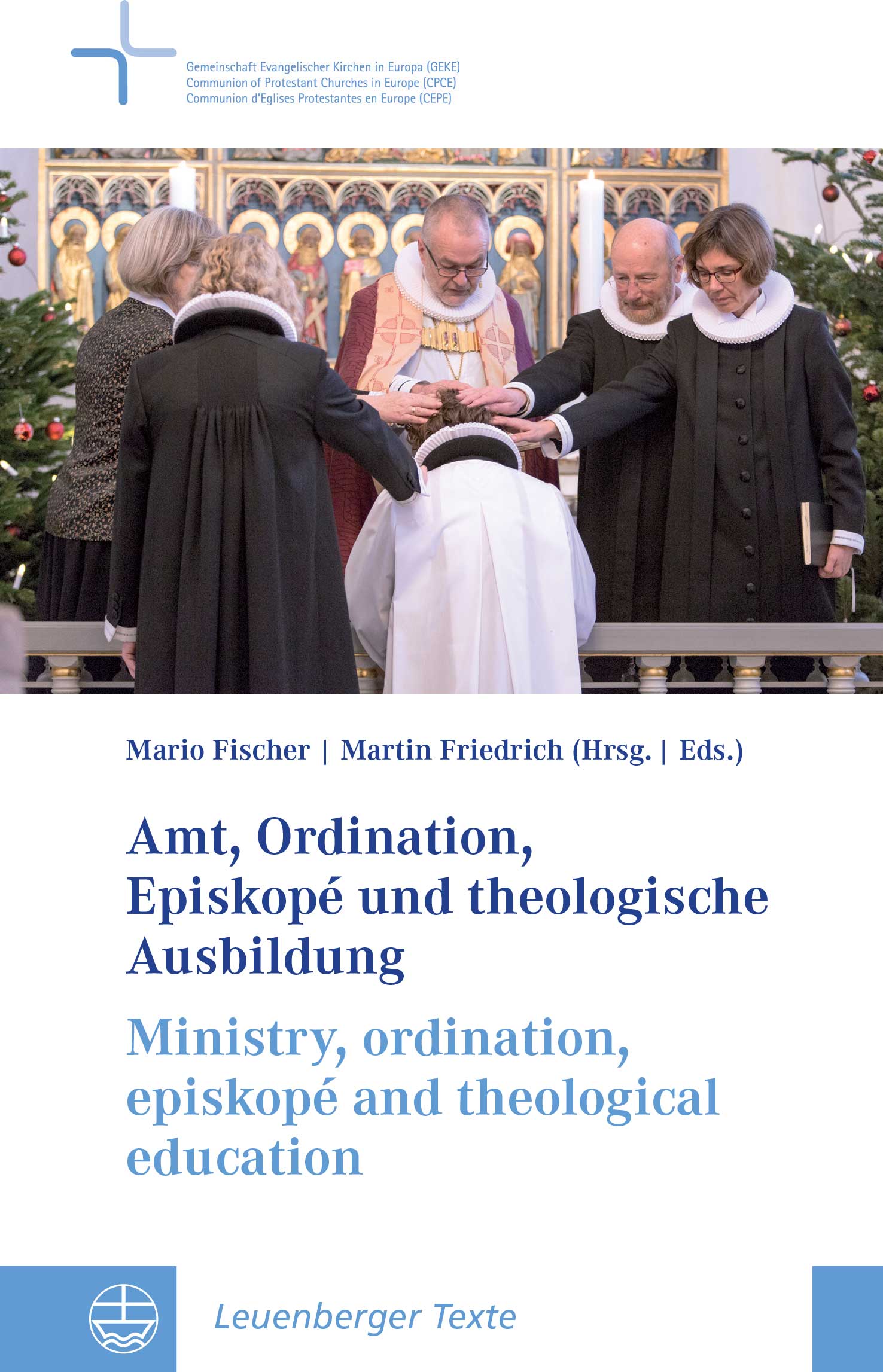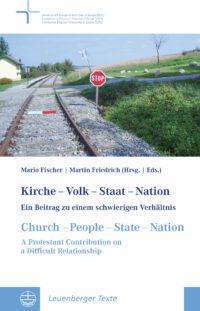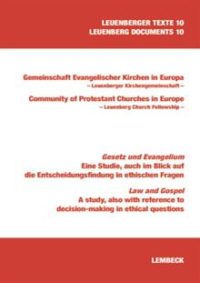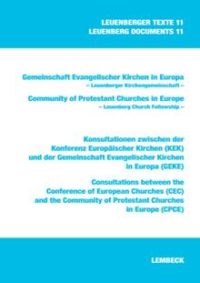Leuenberg Texts 13: Ministry, ordination, episkopé and theological education
€9.00
This volume documents three sets of findings by the CPCE which were accepted by the 2012 and 2018 General Assemblies. The report of the doctrinal conversation on “Ministry, Ordination, Episkope” defines the Protestant position on these issues, which are of vital ecumenical interest. At the same time, it seeks to deepen the church communion of CPCE member churches. This is also the aim of the studies “Training for the ordained ministry in the CPCE” and “Continuing education for the ordained ministry in the CPCE”. They outline a common understanding of good training that the member churches can take as a guideline.
This volume documents three sets of findings by the CPCE which were accepted by the 2012 and 2018 General Assemblies. The report of the doctrinal conversation on "Ministry, Ordination, Episkope" defines the Protestant position on these issues, which are of vital ecumenical interest. At the same time, it seeks to deepen the church communion of CPCE member churches. This is also the aim of the studies "Training for the ordained ministry in the CPCE" and "Continuing education for the ordained ministry in the CPCE". They outline a common understanding of good training that the member churches can take as a guideline.
This book is also downloadable for free:
Additional information
| Weight | 362 g |
|---|---|
| Language/s | English, Deutsch |
| Edition | 2nd, 2021 |
| Publishing House | Community of Protestant Churches in Europe CPCE |



